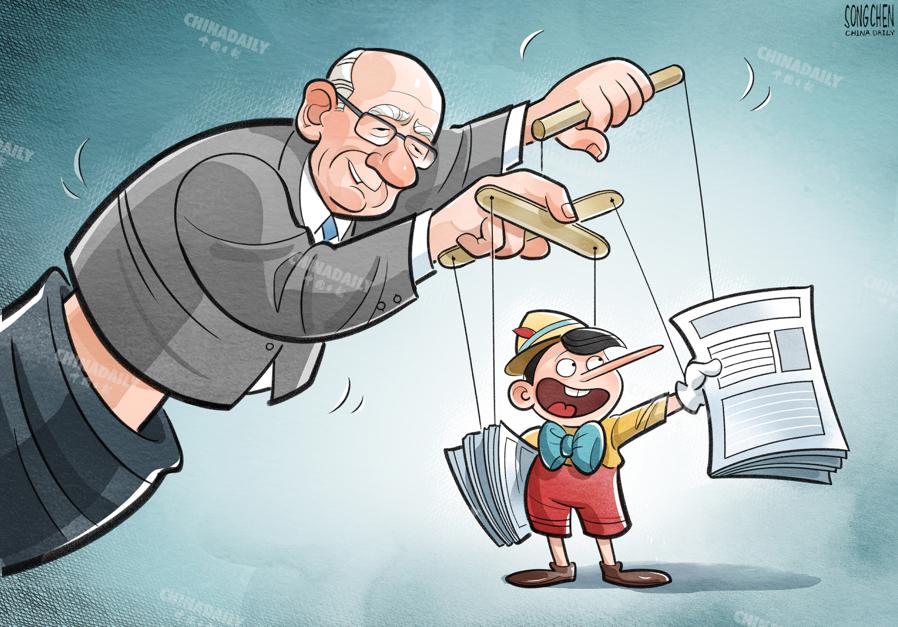
By Wang Chao
Some US politicians and media outlets have been using every possible trick to blame China for the Ukraine-Russia conflict. They have been spreading disinformation that China didn't do enough to prevent the Ukraine crisis, claiming that China had advance knowledge of Russia's "special military operation".
The fact is, after triggering the Ukraine crisis and plunging the world into chaos, the United States is trying to shift the burden onto others instead of shouldering its responsibilities as a major country and working with the rest of the world to end the crisis.
The sanctions imposed on Russia by the US-led West have affected the global economy, and perhaps intensified the conflict. While the global oil and gas markets have become more volatile, oil prices have surged above $100 a barrel. The US benchmark West Texas Intermediate crude futures topped $130, the highest since 2008, and the Brent Crude, the international benchmark, reached almost $140 shortly after the crisis began.
On the other hand, the high inflation rates in the European Union (6.2 percent) and the eurozone (5.9 percent), due to the Ukraine-Russia conflict, could shave more than 1 percentage point off global economic growth this year while pushing up global inflation by another 2.5 percentage points, according to OECD's estimate in March.
Yet the US has been spreading falsehoods and forcing more countries to exert pressure on China to side with the West against Russia, in order to benefit from the crisis. The US' goal is also to drive a wedge between China and the EU, which is feeling the spillover effects of the conflict, by spreading disinformation that China had advance knowledge of Russia's military move.
In short, the US wants to isolate Russia and tarnish China's global image to maintain its hegemony in Eurasia.
The US was instrumental in triggering the conflict by continuing NATO's eastward expansion and deploying US troops in Europe even after Russia's vehement objections as it believes they pose a threat to its national security.
However, when Russia started the "special military operation" in Ukraine, US President Joe Biden said "our forces are not and will not be engaged in the conflict with Russia in Ukraine. Our forces are not going to Europe to fight in Ukraine but to defend our NATO allies and reassure those allies in the east". Later, NATO said it will not counter Russian forces in the air or on the ground in Ukraine to avoid the risk of a wider war.
Instead, the US and its allies have issued devastating sanctions against Russia, and the US State Department announced it would send $350 million worth of weapons and military equipment to Ukraine. The US also froze the assets of the Russian Central Bank.
Biden has said that the US and the other G7 economies, plus the EU, aim to strip Russia of its "most favored nation" status (known as Permanent Normal Trade Relations status in the US). Washington wants to remove Russia from the G20, too.
Rather than trying to resolve the Ukraine crisis through peaceful talks, the US has been adding fuel to the fire by imposing sanctions on Russia and baselessly accusing China of wrongdoing.
In contrast, China believes that a major economy should serve the international community, try to achieve win-win results and contribute to global peace, instead of trying to benefit from other countries' woes.
China has been trying to persuade Russia and Ukraine to resolve the conflict through talks. No matter what the US claims, China has always urged all the parties to remain calm and think rationally, abandon the Cold War mentality, make decisions based on the merit of an issue, and peacefully settle their disputes and differences, because it believes all countries must abide by the United Nations Charter.
People with a sense of justice should be able to decide which country is right and which is wrong.
The author is a research fellow at the Institute of Russian, Eastern European and Central Asian Studies, Chinese Academy of Social Sciences.

 中文
中文





